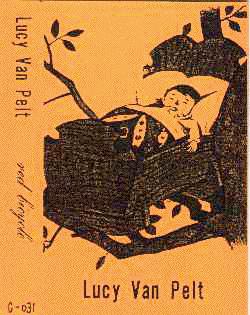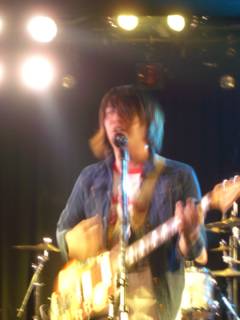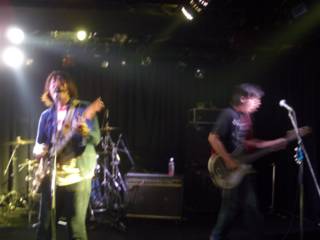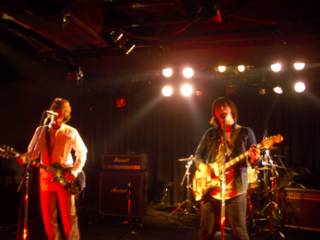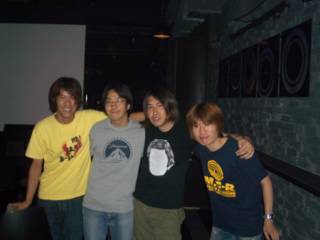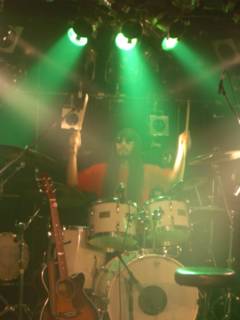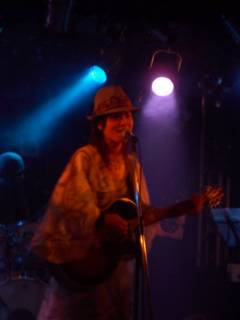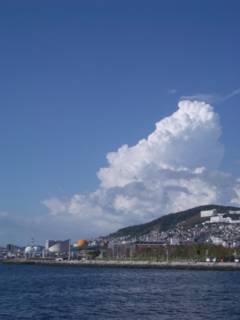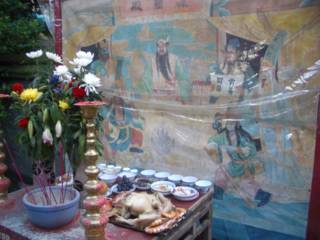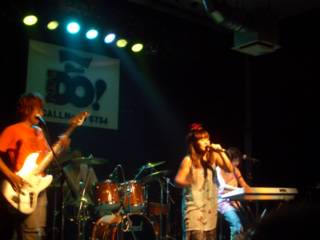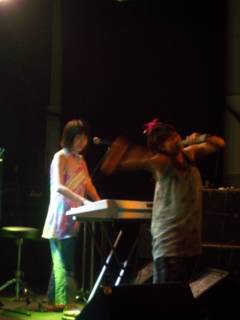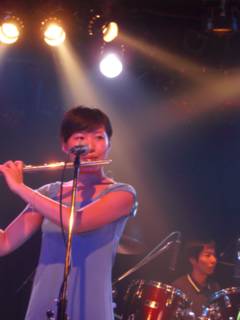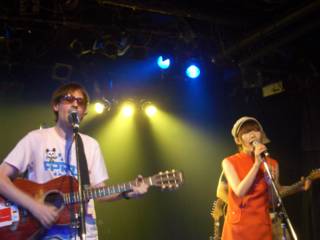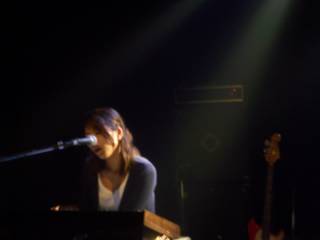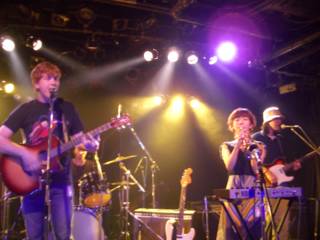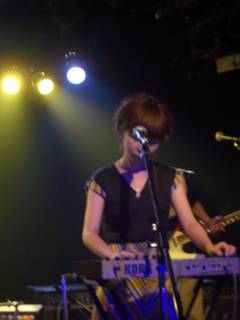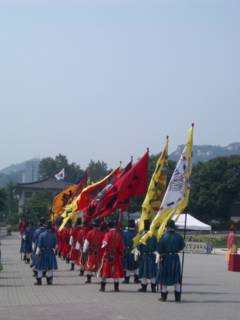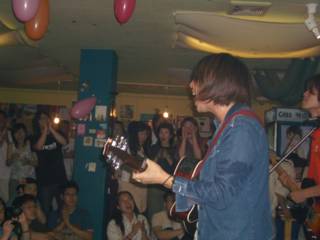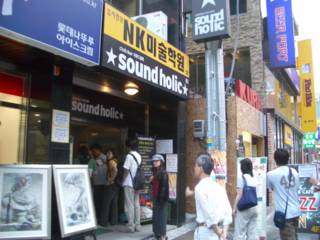
Orange Plankton at the Take Off 7.

Of the hundreds of Japanese bands I’ve seen live, Orange Plankton is without doubt one of the most absorbing, happiness-inducing, and simply, best.
I’ve loved the piano pop quartet ever since I saw them first about a year ago. Since then, they’ve twice toured Japan on a shoestring (traveling in a van packed with instruments, equipment and merchandise; staying at homes of family and friends or at all-night sauna centers) and, as happens when bands need to excite crowds in strange lands every night, Orange Plankton has grown tremendously as a live band.
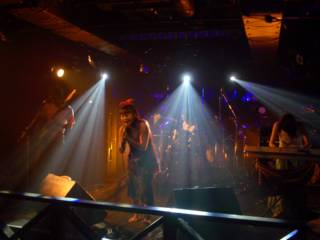
Orange Plankton

Tonight Orange Plankton started quietly, playing a slow, jazzy song called ‘Shizuka-na–itsuka [hard to translate, but something like ‘A Quiet Someday’]’ from their 2nd album. But they quickly built up in intensity as they went through songs from the latest album, their fourth, Wakusei Note.
Orange Plankton, on fire on stage, is a sight to behold. In particular, singer Yumi is a magnetic presence, one who never stops moving (it’s hard to capture her on film because of that) and who sings as though she’s squeezing out her soul with her voice.
Their best moment tonight was when they played ‘Mizu-umi [‘Lake’]’ from their latest album, a tune that builds up to a climactic solo exchange between Yuki’s keyboard and Tsuujii‘s bass. You don’t often hear songs as good as ‘Mizu-umi’ on the radio. Nor do you often get to see a song of this caliber played live in a small club.
***
Take my word for it, Orange Plankton isn’t well-known yet but is one of the best, and if you are in Tokyo, you should see them while you still can in tiny clubs. In the next few weeks they’re playing at: Oct. 9, Shibuya Club Asia; Oct. 19, Shibuya Plug; Nov. 3, Shimokitazawa Garage; Nov. 4, Shibuya DeSeo.
And their latest album, Wakusei Note, as I wrote before, is my favorite Japanese album so far this year. It’s hard to find, so let me know if you are interested in it. I like it so much I may even give it away for free!
